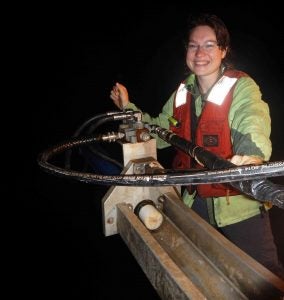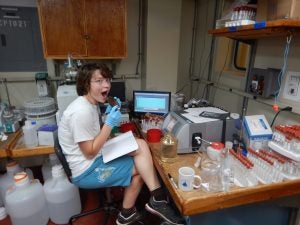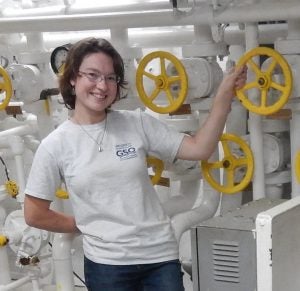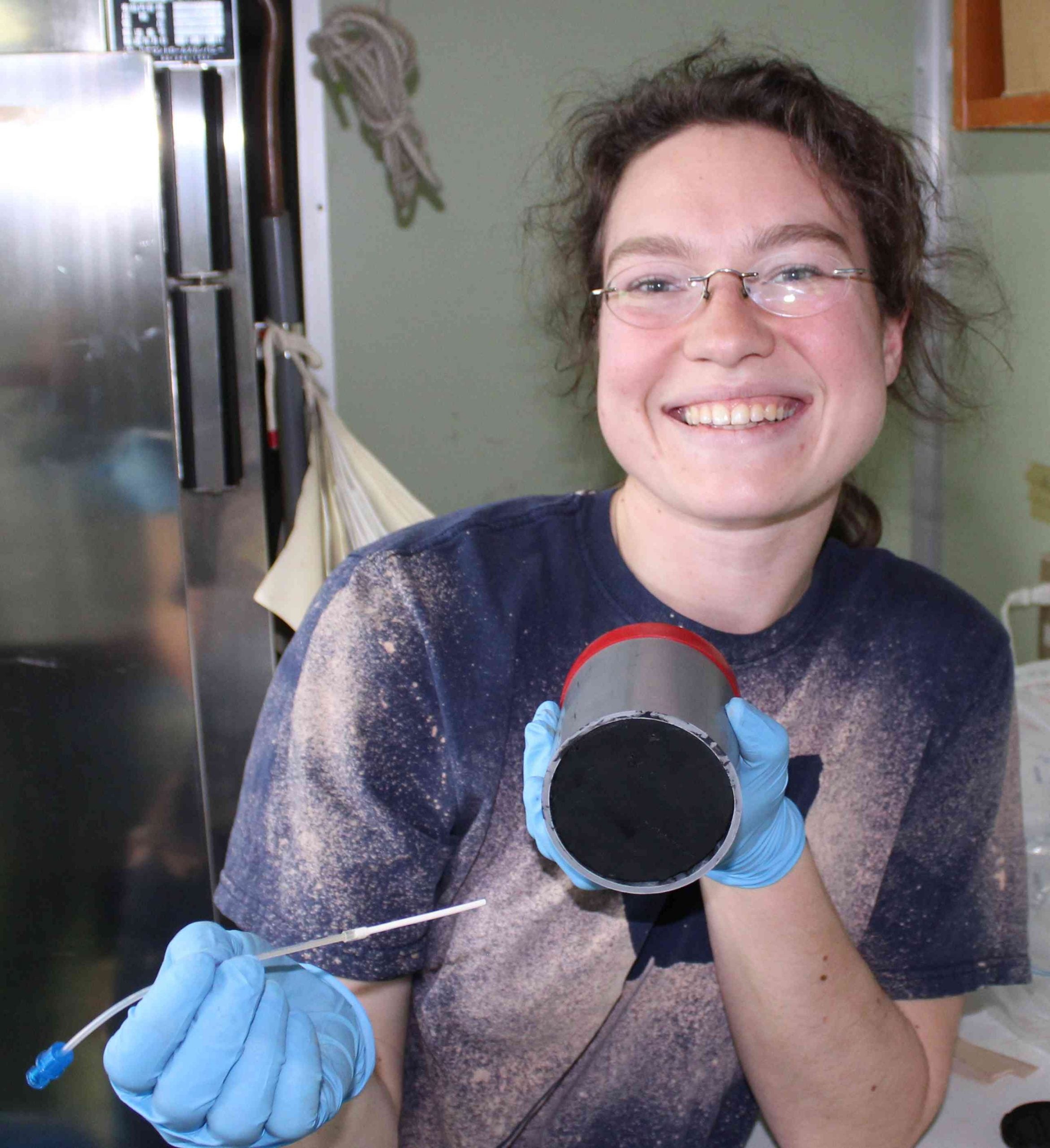May 22, 2020
Welcome to the seventh in our new series: GSO Profiles! Each post will feature a brief interview with a member of the GSO community. Our first several profiles will be of GSO students who graduated over the past year. These profiles are one way we can celebrate the accomplishments of those graduating in this unusual time of COVID-19, and also welcome them to the ranks of GSO alumni.
We are continuing our series with Kira L. Homola who this month received her Ph.D. in Oceanography with a concentration in marine geology and geophysics. Her major professor was GSO professor Arthur Spivack. Kira received undergraduate degrees in both Oceanography and Mechanical Engineering from the University of Washington in 2013. What Kira does for work and for fun spills over to each other and motivates her. It’s obvious that she enjoys being in, on and around the ocean and learning its secrets.
Here’s Kira, in her own words:
GSOP: Tell us about your work/research at GSO: what question(s) are you trying to answer?
KLH: Where was carbon stored within the deep ocean during the most recent ice age twenty thousand years ago? What does this mean for the fate of the carbon humans are currently adding to our atmosphere? What are the temperature and pressure limits of life? Can microbes survive in the deep Earth for millions of years at temperatures greater than we can sustain them in a laboratory? What does this mean for the origins of life on Earth and the potential for life on other planets?

GSOP: What is your favorite thing about your work?
KLH; Holding rocks, water and fossils that have been buried deep below the seafloor for millions of years while living aboard isolated, floating cities designed just to access these parts of our planet and unravel their secrets.
GSOP: What led you to your studies/career in ocean science?
KLH: Swimming in the bioluminescent Salish Sea after a day crewing a local learning vessel; welding landscape art for my vocal group’s community garden efforts; sharing the joy of a twilight dive offshore Diamondhead volcano as a guide in divemaster training; or unraveling the history of a seaside red clay deposit only to sculpt it hours later on a pottery wheel: experiencing moments like these in every environment I’ve encountered has filled me with a profound appreciation for the complexity of our planet and the joy of engaging others in those immersive moments.
GSOP: What brought you to GSO?
KLH: I have developed a unique perspective of the natural world through exploring its fascinating interconnectivity. Learning to articulate earth science concepts and how they apply to any individual led me to graduate school. When the positive impacts of government, research, and education are not obvious to the average voter, I feel compelled to communicate to policymakers and the public how much we rely on scientists and educators. Learn something and teach something for a meaningful experience with someone.
GSOP: How have the COVID precautions affected you?
KLH: As one of the lucky ones with a stable home and my required lab work completed last year, I was able to work from home to finish writing and collaborating digitally to complete my dissertation. Community volunteering has replaced my usual social outlets, as actively helping is my best coping mechanism.

GSOP: Who have been your role models or mentors?
KLH: In the decade I’ve spend as an ocean-going scientist, I have been privileged to work and live alongside extraordinary people exploring alien environments. I’ve gained inspiration and support from so many of these colleagues and cannot thank my family enough for instilling a visceral desire to make the world a better place even when it’s a struggle.
GSOP: What do you do for fun?
KLH: I am a dancer, singer, and performer that loves to spend as much time outside as possible. Never happier than when I’m underwater, my spare resources go towards traveling as I consider experiencing different cultures and environments as critical to learning as formal education.
GSOP: What is your favorite spot or view at GSO?
KLH: I love the view through the Watkin’s auditorium hidden window – as you slowly roll down the chalkboard to revel a half-circle window that lights up the room with a gorgeous perspective of Narragansett Bay through the branches of decade-old trees. The reminder that there are hidden layers everywhere is one I find thrilling.

GSOP: What is your advice for someone considering ocean science for their academic/professional career?
KLH: I cannot imagine a more exciting or rewarding field than ocean-going research, largely because of the incredible community that makes it possible. Remember that you are a part of that initiative, valuable and necessary to keep it alive, no matter how you may be involved.
Kira’s linked-in: https://www.linkedin.com/in/kirahomolal/

